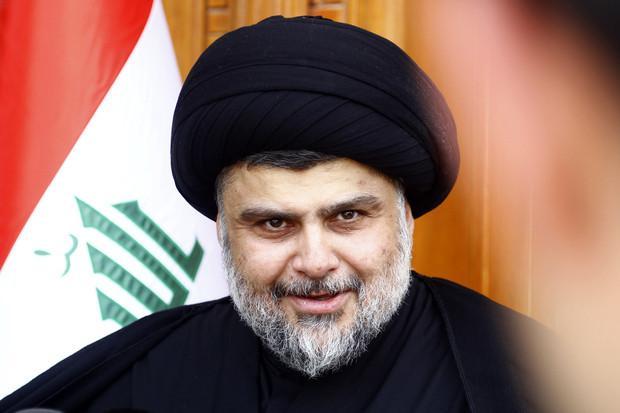
An alliance headed by nationalist cleric Moqtada Sadr and a rival bloc of pro-Iranian former fighters appeared to surge on May 14 in surprise preliminary results from Iraq’s first poll since the defeat of Islamic State of Iraq and the Levant (ISIL).
If confirmed, the outcome would throw open the race to become the next prime minister, as internationally favored incumbent Haider al-Abadi lagged behind after a vote hit by record abstentions.
According to partial results seen by AFP, the Marching Towards Reform alliance of Shiite cleric Sadr and his communist allies was ahead in six of Iraq’s 18 provinces and second in four others.
Sadr has reinvented himself as an anti-graft crusader after rising to prominence as a powerful militia chief whose fighters battled U.S. forces after the 2003 invasion.
While long railing against the United State, the nationalist firebrand has also distanced himself from its key rival Iran, drawing closer to regional Sunni powerhouse Saudi Arabia.
Next in the running is the Conquest Alliance, made up of ex-fighters from mainly Iran-backed paramilitary units that battled ISIL, with results putting them ahead in four provinces and second in eight others.
The head of the list is Hadi al-Ameri, a long-time ally of Tehran, whose forces ended up battling alongside the US to oust the jihadists.
Both Sadr and Ameri are long-time political veterans well-known to Iraqis, but they pitched themselves as seeking to sweep clean the country’s reviled elite.
The complex electoral arithmetic of the Iraqi system, however, means that the final makeup of 329-seat parliament is still far from decided.
The ballots of some 700,000 security personnel who voted and Iraqis abroad were yet to be tallied up, meaning Abadi could get a boost five months after he announced victory over ISIL.
Whatever the outcome, there looks set to be lengthy horse-trading between the main political forces before any new premier and a coalition government can be installed.
Sadr - who did not stand as a candidate and therefore cannot become premier - appears in pole position to play kingmaker after years on the sidelines.
Among the traditional powerbrokers looking set to lose big at the election was divisive former premier Nuri al-Maliki, who remains widely reviled for the loss of territory to ISIL.
The electoral surprise comes with tensions surging between the United States and Iran after Washington’s withdrawal from the 2015 nuclear deal, sparking fears of a destabilising power struggle over Iraq.
Abadi - who came to power as ISIL swept across Iraq in 2014 - has been a consensus figure who balanced off the United States and Iran.
Several senior political figures had previously told AFP that preliminary results put Abadi in the lead, on course to scoop 60 of the 329 parliamentary seats up for grabs.
U.S. Secretary of State Mike Pompeo, whose country still has troops in Iraq from the fight with IS, on Saturday lauded the poll and called for an “inclusive government, responsive to the needs of all Iraqis.”
But the ballot saw a record low turnout, as only 44.5 percent of eligible voters headed to the polls in the lowest participation rate since the 2003 U.S.-led ouster of Saddam Hussein.
After the announcement that the Marching Towards Reform was ahead in Baghdad, supporters took to the streets in the capital to celebrate early on May 14.
Crowds of mainly young people waved flags and pictures of the populist nationalist cleric Sadr while fireworks fired off into the night sky.